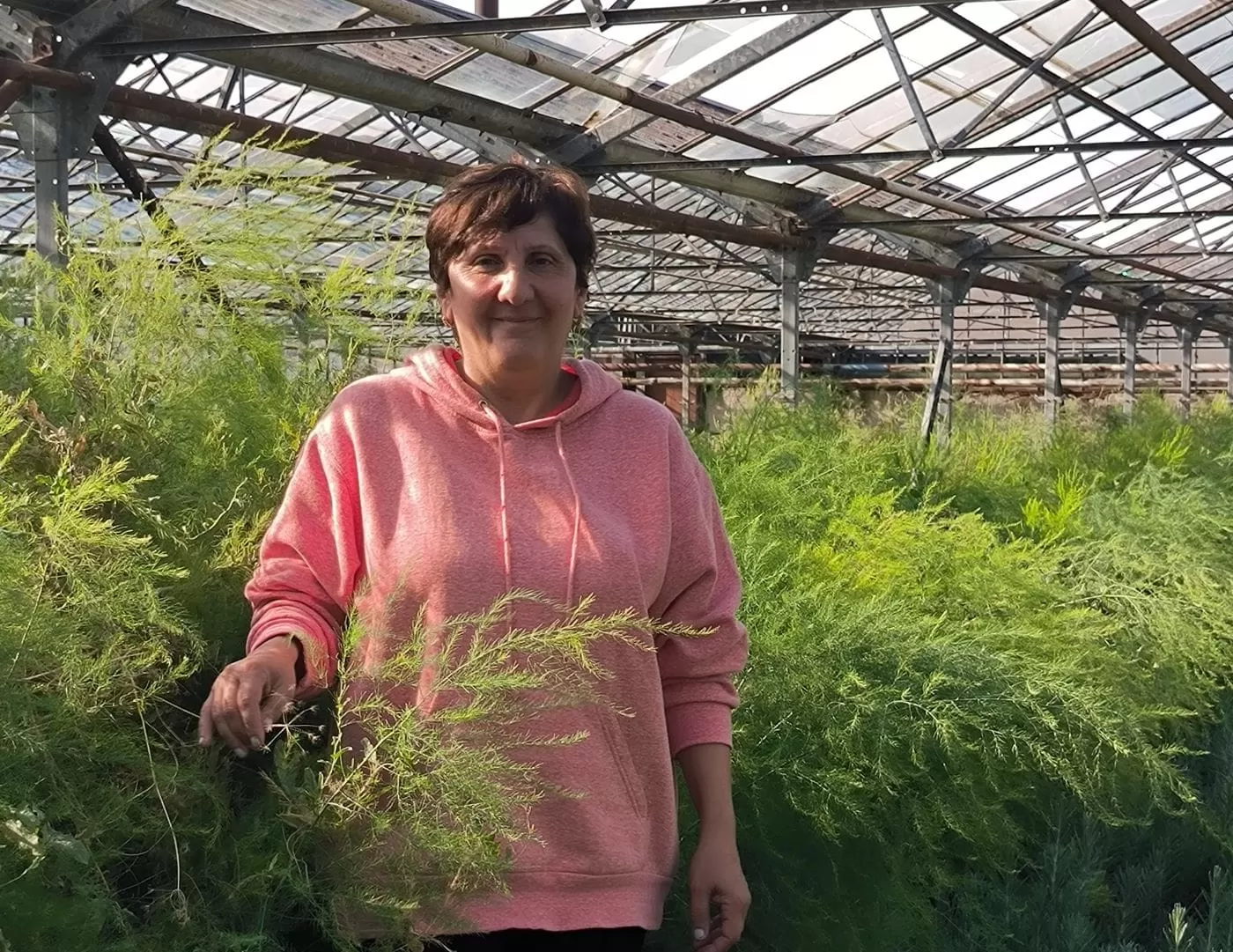
The family of Karine Heriknazyan and Artashes Karapetyan lives in Spitak community of Lori marz. Before marriage, Karine Heriknazyan never thought that there would be a job that would be as close to her heart as medicine. A pediatric rehabilitation specialist, who was in love with her profession, found two new loves at once: her husband and farming.
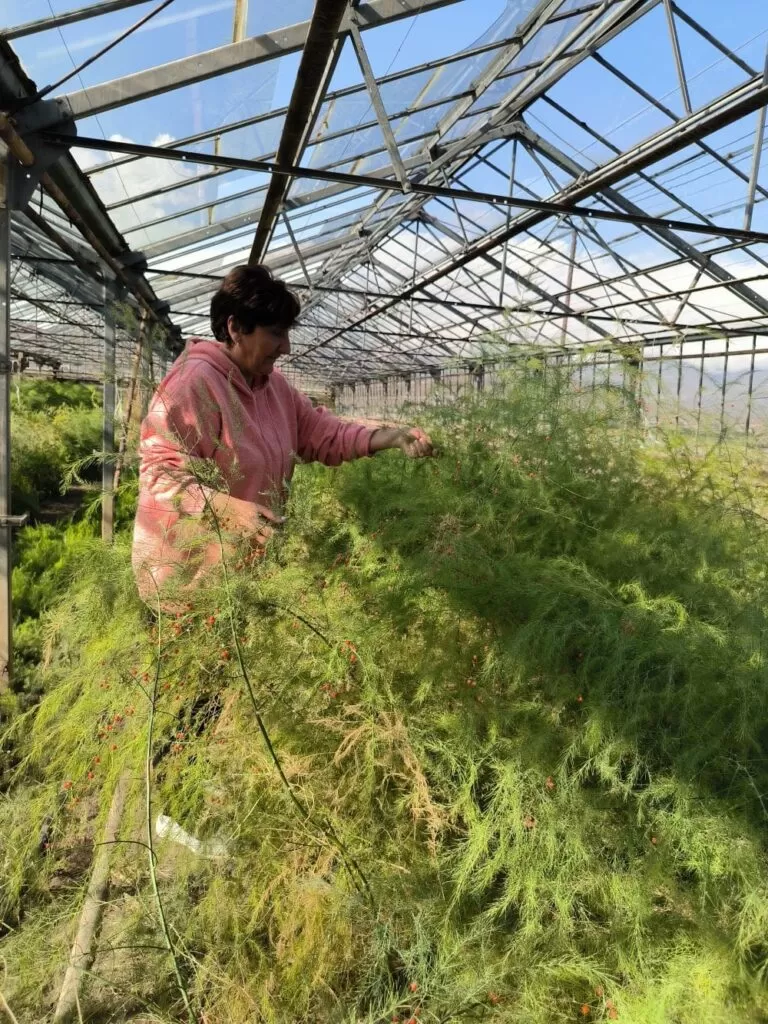
"At first glance, medicine and farming have nothing to do with each other, they couldn't interest me at the same time, but after a very short time I really fell in love with the land and everything related to it. I think that my husband's love and interest in his work, his desire to constantly try things contributed to this," says Karine, joking that today the decades-long marriage has turned into a stable partnership.
Today, they, husband and wife, manage the "Smart farm Spitak" company. She says that they do not have a single day of rest in the year, they do not like to be idle, they are not afraid of difficulties. At first, they engaged in animal husbandry, beef and pig breeding, they had greenhouses, they grew various crops, then biohumus production was added to it. Today, apart from all this, the focus of the family's attention is the production of valuable crops, and in this matter they are supported by the "Green Agriculture Initiative in Armenia" (EU-GAIA) project, which is co-financed by the European Union and the Austrian Development Cooperation.
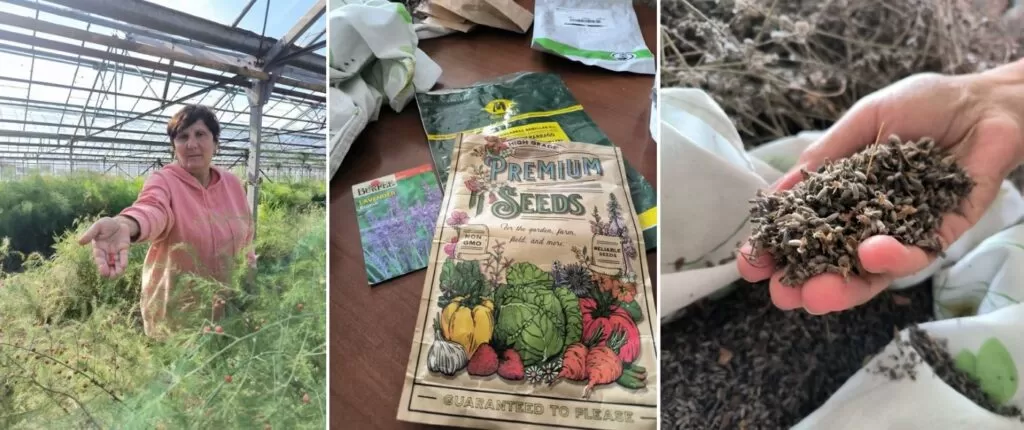
The whole house is fragrant: a small part of this year's lavender crop is drying on the living room table, from which they will later get seeds. It was from this odor that the new business idea of this family started.
Another valuable crop grown by the family is asparagus. The first seeds were given to them years ago by an acquaintance. The hard, small, black granules waited for their time in a transparent bag for years.
She says that when she heard about the "Green Agriculture Initiative in Armenia" (EU-GAIA) project, she did not think twice: she already had a ready-made idea, the support provided for bringing it to a professional level of development could be very valuable.
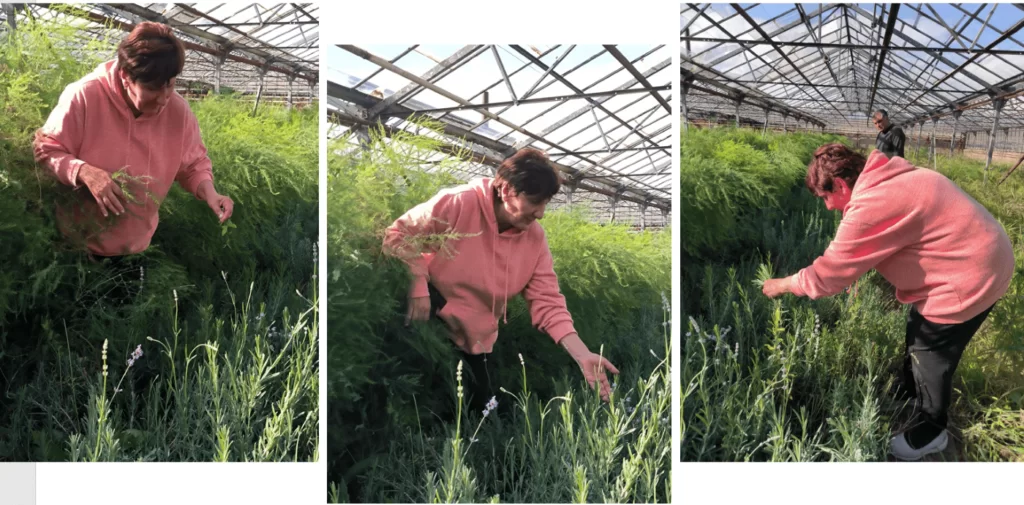
"Within the scope of the project, we were provided with a tractor, a plow, and other equipment for cultivating asparagus plantations, which really helped us a lot. Thanks to that, we were able to increase the annual batch to 120,000 seedlings," says Karine.
Mainly women are involved in the production of asparagus. Men help with hard, physical work, but nine women work in the greenhouses during the season.
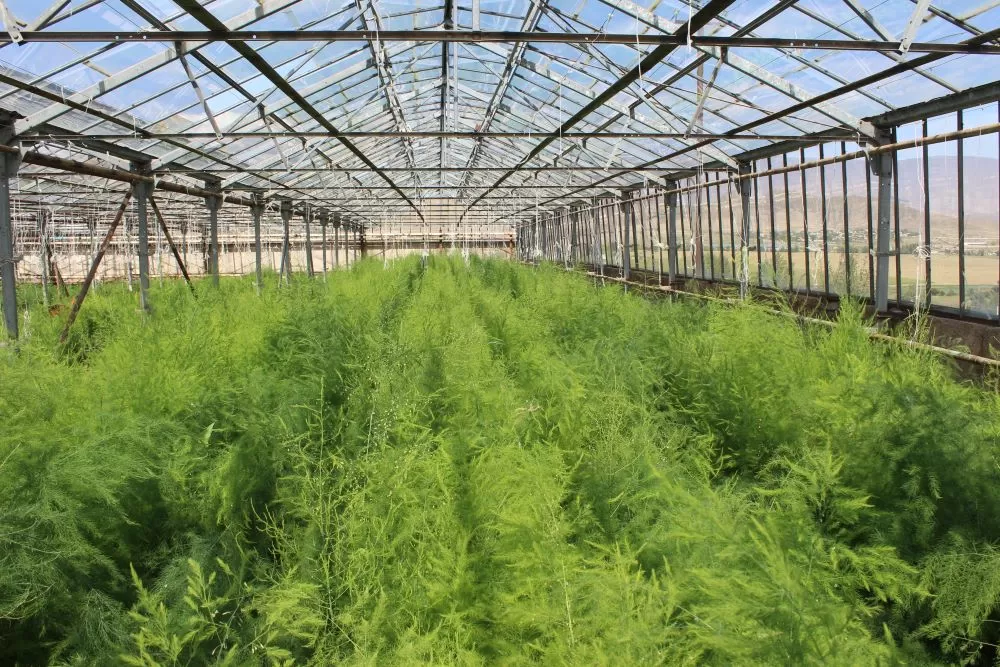
"The work done by women is always distinguished by its meticulous approach. In addition, it is more difficult for women to find work in rural communities, and this work is not physically demanding, so we chose to involve women in this to ensure their employment. In addition to the fact that women have stable employment for several months, we also try to help them learn in the process and become professionals in their work because we are convinced that education is the guarantee of work efficiency", says Karine.
This green farming family does not just take care of itself. Asparagus seedlings, necessary training, counseling and mentoring are provided to farmers of already six regions. These farmers have already received their first full harvest this year. The couple hopes that soon their partnership network will cover the whole of Armenia.
Full text in Armenian

This publication was produced with the financial support of the European Union and the Austrian Development Cooperation. Its contents are the sole responsibility of the author and do not necessarily reflect the views of the European Union and the Austrian Development Agency.
© 2023 Austrian Development Agency.
All rights reserved. Licensed to the European Union under conditions.
About EU-GAIA project
The EU Green Agriculture Initiative (EU-GAIA) is currently the largest agricultural project in Armenia, funded by the European Union (EU) and co-financed by the Austrian Development Cooperation (ADC) ). The project is implemented by the Austrian Development Agency (ADA) and the United Nations Development Program (UNDP). The project government counterpart is the RA Ministry of Economy. The Project is aimed at facilitating the development of sustainable, inclusive, innovative and market-oriented agribusinesses․